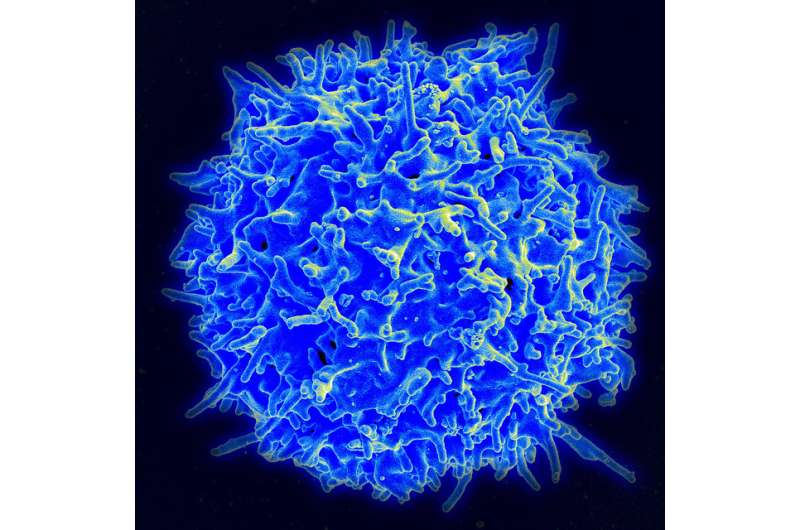Study reveals how to reprogram cells in our immune system

When the immune system is imbalanced, either due to overly-active cells or cells that suppress its function, it causes a wide range of diseases, from psoriasis to cancer. By manipulating the function of certain immune cells, called T cells, researchers could help restore the system's balance and create new treatments to target these diseases.
Scientists at the Gladstone Institutes revealed, for the first time, a method to reprogram specific T cells. More precisely, they discovered how to turn pro-inflammatory cells that boost the immune system into anti-inflammatory cells that suppress it, and vice versa.
The researchers studied two types of cells called effector T cells, which activate the immune system to defend our body against different pathogens, and regulatory T cells, which help control the immune system and prevent it from attacking healthy parts of its environment.
"Our findings could have a significant impact on the treatment of autoimmune diseases, as well as on stem cell and immuno-oncology therapies," said Gladstone Senior Investigator Sheng Ding, PhD, who is also a professor of pharmaceutical chemistry at the University of California, San Francisco.
By drawing on their expertise in drug discovery, Ding's team identified a small-molecule drug that can successfully reprogram effector T cells into regulatory T cells. Their study, published in the renowned journal Nature, describes in detail a metabolic mechanism that helps convert one cell type into another.
This new approach to reprogram T cells could have several medical applications. For instance, in autoimmune disease, effector T cells are overly activated and cause damage to body. Converting these cells into regulatory T cells could help reduce the hyperactivity and return balance to the immune system, thus treating the root of the disease.
In addition, the study could improve therapies using stem cells. At least in theory, producing regulatory T cells could promote immune tolerance and prevent the body from rejecting newly-transplanted cells.
"Our work could also contribute to ongoing efforts in immuno-oncology and the treatment of cancer," explained Tao Xu, postdoctoral scholar in Ding's laboratory and first author of the study. "This type of therapy doesn't target the cancer directly, but rather works on activating the immune system so it can recognize cancer cells and attack them."
Many cancers take control of regulatory T cells to suppress the immune system, creating an environment where tumors can grow without being detected. In such cases, the team's findings could be used to transform regulatory T cells into effector T cells to strengthen the immune system so it can better recognize and destroy cancer cells.
More information: Tao Xu et al, Metabolic control of TH17 and induced Treg cell balance by an epigenetic mechanism, Nature (2017). DOI: 10.1038/nature23475















